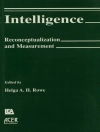Supply chain management is the cornerstone of the competitive strategies of many presentday organizations and has evolved from the operational to the strategic level. Understanding this, Principles of Global Supply Chain Management offers a comprehensive insight into the global supply chain sector—analyzing the strategic, operational and financial aspects of the industry, and addressing the key elements in the management of global supply chains. The key topics of each chapter demonstrate a variety of fundamental issues in the supply chain industry: What are supply chain markets? What is the supply chain cost structure? What are supply chain strategies? How do supply chain firms design and implement strategies? What are the key roles of logistics service providers, logistics education operators and logistics associations? How should supply chain operations be managed? How is a sustainable and innovative supply chain structure created? Comparative practical case studies from Asia, North America and Latin America lend weight to the chapters.
Table des matières
1. Introduction; 2. Managing Outbound Logistics and Distribution; 3. Supplier Selection and Procurement; 4. Warehouse Management; 5. Case Studies in Food Supply Chains; 6. Inland Ports in Global Supply Chains; 7. Climate Change in a Global Environment; 8. Sustainability in Infrastructure-Based Supply Chains; 9. Reverse Logistics; 10. Logistics Associations; 11. Logistics Education; 12. Case Exercises in Global Supply Chains; Index.
A propos de l’auteur
Yui-yip Lau is a lecturer at the Division of Business and Hospitality Management, Hong Kong Community College, Hong Kong Polytechnic University, Hong Kong. His research interests are supply chain management, higher education, and cruise and ferry. The author of a book, Lau has published more than 130 research papers in international journals and professional magazines, contributed book chapters and presented numerous papers at international conferences. Lau is the chief editor of Seaview and the section editor of Data in Brief.
Adolf K. Y. Ng is professor of supply chain management at the Asper School of Business, University of Manitoba, Canada, and a senior fellow of the university’s St. John’s College. The recipient of prestigious international and national fellowships and academic awards, Ng is the associate editor of Maritime Policy & Management, senior editor of the European Journal of International Management and associate editor of the Asian Journal of Shipping and Logistics.
Jorge Acevedo Alarid, creator of the Holistic Vision Model and the Holistic Infrastructure Model, and president of the Mexican Institute of Logistics (Instituto Mexicano de Logistica), is the founder of the national initiative for the creation of the Federal Customs and Migration Agency (Agencia Federalde Aduanas y Migración) and of Mexico’s Worldwide Logistics Platform project. He is a member of the Mexican Institute of Executives in Foreign Trade (Instituto Mexicano de Ejecutivos en Comercio Exterior) and of the Mexican Association of Intermodal Transportation (Asociación Mexicana del Transporte Intermodal).












